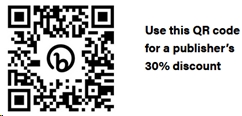![]()
Joanie interviews Juliette Powell, author, entrepreneur, technologist, and strategist. Juliette’s background is varied and extensive. She is a co-author of the book, The AI Dilemma, and her consulting services focus on global strategy and scenarios related to AI and data, banking, mobile, retail, social gaming, and responsible technology.
Highlights:
Q: How did the book come about?
A: Juliette tells the story of how the book emerged from her graduate studies and talks about the research she incorporated to back up all of the assertions in the book.
Q: How does bias get incorporated into AI algorithms and exacerbated by them?
A: Juliette posits that much of the bias is not introduced on purpose and describes how that can happen. One of the ways bias is introduced stems from the demonstrated fact that we humans have the tendency to want to work with people like us and that can lead to a lack of diversity of experiences and thought. Juliette describes other ways bias is introduced and how to bring different people together to reduce it, from the individual level up to the organization and government levels.
Q: How can we get businesses to invest in AI auditing?
A: Juliette acknowledges that we are still in an experimental space with generative AI, but also suggests incorporating risk analysis at the organizational level to examine potential consequences. Reputation, for example, is important for a corporation. Government regulations are also being formed.
Listen to the episode to learn ways to create and use AI responsibly.
Words of Wisdom about AI:
Ask yourself: how much control do you want to have in your life?
Examine the culture of your organization to determine your AI governance.
What am I not willing to do for a buck?
What are you as an organization not willing to do to make money?
Book:
Contact Juliette Powell:
Website: juliettepowell.com
LinkedIn: https://www.linkedin.com/in/juliettepowell/
Podcast: Play in new window | Download
